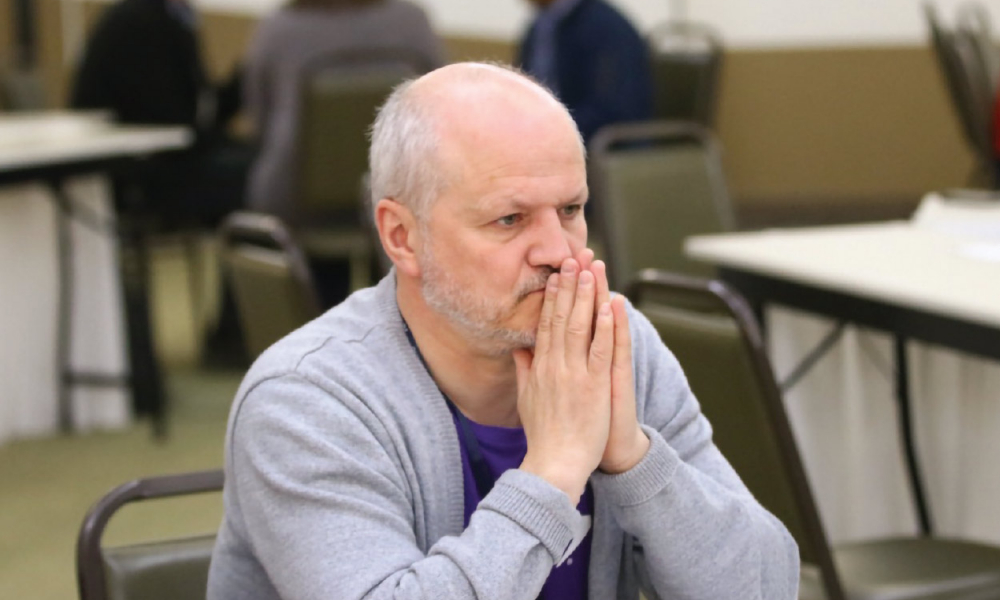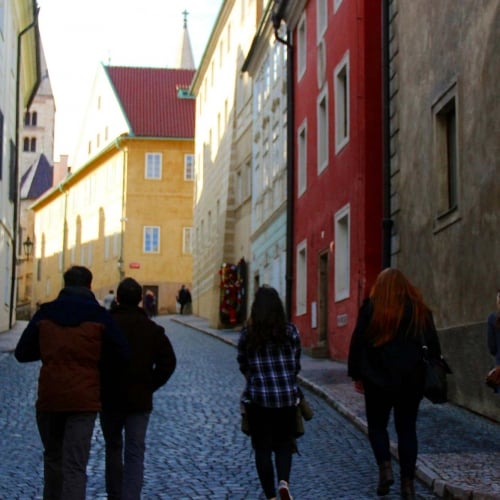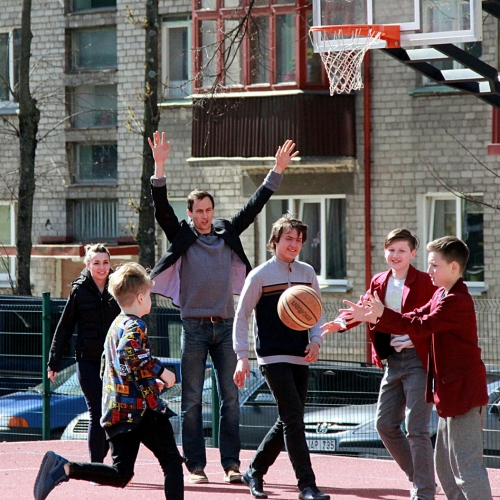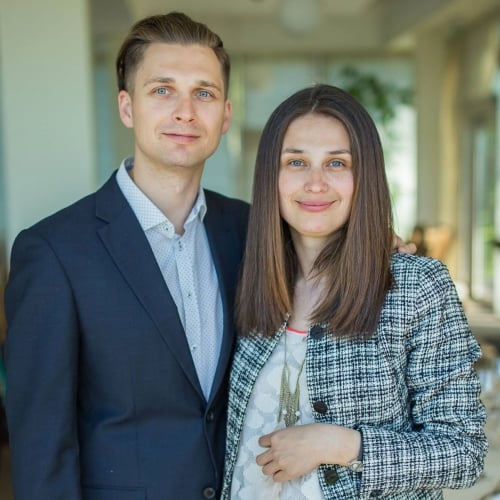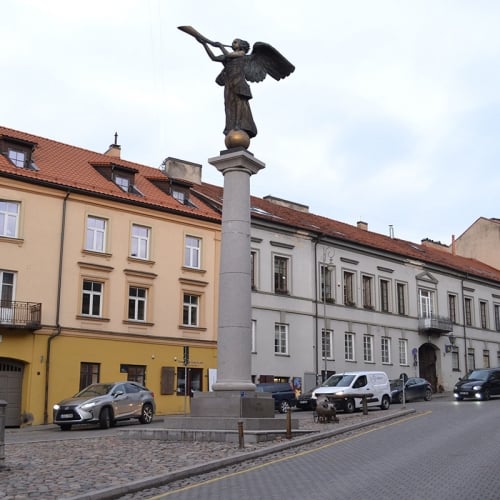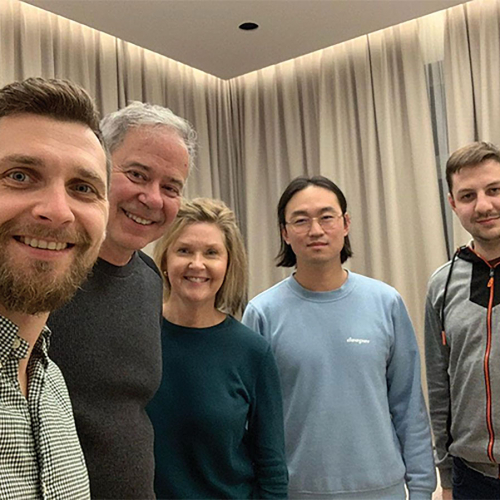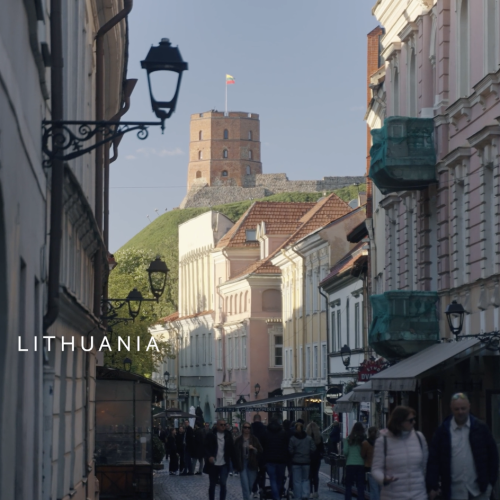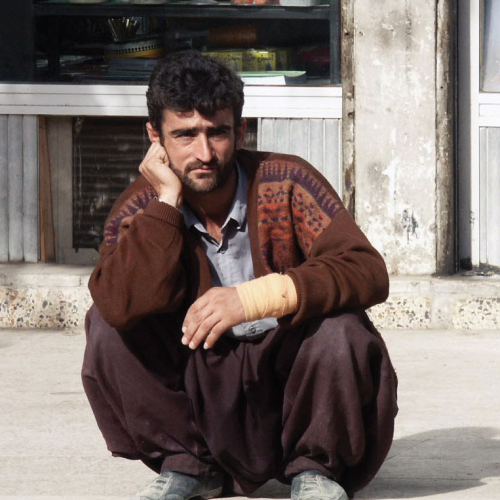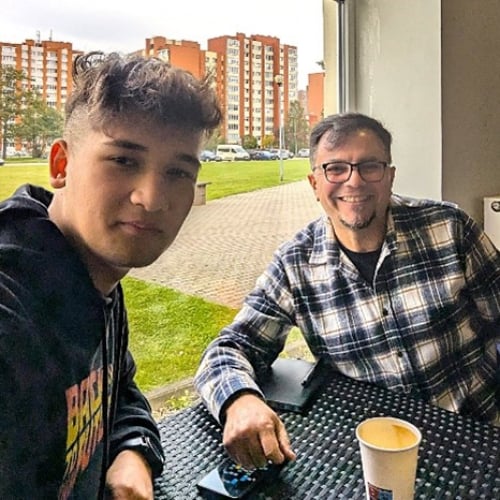It was the right thing to do, of course. There was never any real doubt in his mind. But to have strangers in his home, after living alone for so long—this was not easy to consider. He would have only one room with a bed and a table where he could be alone. He would lose his freedom, his privacy.
The refugees, however, had lost everything.
When pastor Valdas Vaitkevicius first talked with his church in Siauliu, Lithuania, about providing refuge for those fleeing the war in Ukraine, the response was restrained. There were only three besides him who felt a simultaneous stirring in their hearts. Others felt anxiety, triggered by painful memories of Lithuania’s own history of oppression and occupation by the former Soviet Union. With Russia on their western border and Belarus to the south, any action taken in support of Ukraine would be a very real risk. Valdas persuaded his church to take that risk. “Suffering,” he told them, “should not be endured alone.”
Valdas understands suffering. It was not long ago that his wife died suddenly after an illness of only two months. “When you lose those closest to you,” he shared, “it seems that you lose yourself, too. I could not go back into ministry for almost one year, but the community was there, affirming my calling, waiting for me.”
There have also been extensive times of loneliness for his entire church. For twenty-five years, the congregation experienced feelings of rejection in their city. Originally part of a small church movement started by German emigrants from the Soviet Union, they had struggled to find acceptance within the larger religious community. “We were not Catholic, or Baptist, or Pentecostal,” Valdas said. “So, what were we?”
Over the years, however, they had frequent interactions with missionaries who called themselves Mennonite Brethren. “As the oldest of all pastors, in the biggest of buildings,” Valdas said, “I found myself taking care of their teams. We saw that they were different; they had humility, an ability to cooperate. We began to wonder, how were we different? How were we alike? We felt ourselves aligning well with these Mennonite Brethren.”
The MBs became a source of strength to the church in Šiauli? during a time when they were growing weary. For decades the church had been involved in caring for children from broken and marginalized families. The work was draining. “Sometimes it felt hopeless,” Valdas confessed. “No one else in the community seemed very interested in what we were trying to do.” They received consistent encouragement, however, from their MB friends in Germany and Canada. “They listened to us, and never showed disappointment if there were no conversion stories. They just prayed for us and helped us.”
By 2014, seven Lithuanian churches had asked to come under the MB covering. “We wanted to join this family,” Valdas said, “and we are glad we did.”
After so many years of isolation, it took some time for the church to realize the depth of their new connectedness. “We experienced a tangible sense of global community when we joined the International Community of Mennonite Brethren (ICOMB). Here were brothers and sisters in Christ who did not speak the same mother tongue, were not neighbors in our city, and did not have our traditions, yet we were family in Christ.”
In May 2022, Valdas attended the annual ICOMB summit in Brazil. It was en route to the gathering that he sensed God speaking to him again about suffering and solitude. He found himself alone in the busy São Paulo air terminal, unable to communicate with anyone in his limited English, much less in his native Lithuanian tongue. Baffled by rapid torrents of Portuguese being spoken and anxious about his connecting flight, he had felt isolated and helpless. “There was no one there to understand me,” he said. “No one to share my struggle. I was alone.”
Later, he shared this experience with the global MB delegates in Brazil. “We must always draw close to those in pain,” he told them. Listening to the quiet murmur of translators echoing his words in other languages, Valdas went on. “We are all from different countries, and we may not understand each other’s words, but mercy is a global language.”
The time Valdas spent in Brazil also led to a personal spiritual renewal. He returned to ministry with a desire to give his all, and to encourage his church to go on speaking the language of mercy in Lithuania, and beyond. Ukraine relief efforts were already an important part of that expression.
Within forty-eight hours of the Russian invasion on February 24, 2022, Lithuanian MB churches mobilized teams to drive across the Hungarian border into Ukraine. The drivers moved quickly, at times keeping their vehicle running while dropping off provisions from village to village, picking up as many women and children as they could fit into the minibus to bring back to Lithuania. Before long, the Siauliu church had found itself hosting thirty refugees in their building, with twenty more in private homes.
“Our building was a mess,” Valdas remembered. “Church members volunteered to sort and clean, and somehow we avoided complete chaos, but those first two months we worked from early morning to late at night. People called constantly; the phone was never silent.”
Other MB churches within Lithuania were equally overwhelmed. “So, we came together—our churches in Šiauliai, Vilnius, Klaipeda, Silute, Panevezys, Alytus, Kaunas,” said Valdas. “Then, churches from other denominations joined. Suddenly, everyone wanted to help!”
Valdas described that initial rush of enthusiasm. “We were getting supplies from everywhere, even the local police department. Farmers provided milk, eggs, vegetables. A factory took on the production of canned pork meat to give away. Local businessmen offered jobs, with salary advances.” Others brought in washing machines, refrigerators and household goods. A nearby restaurant served free hot meals daily, for two months. The reputation of their church changed almost overnight: they became a social force, recognized and respected.
The irony was not lost on Valdas. “Our church went unnoticed for over twenty-five years,” he said. “Then the war happens, and within four hours the whole city knows about us!”
Not only did the church’s reputation change, but the members themselves changed. “Before, there was an attitude of focusing only on the spiritual. Now, we are bold with the Word and bold to serve. Before, we were only concerned with our needs; we did not share with others. But that needed to change when the state did not keep its big promises of financial aid. We would have been crushed without the help of other churches.”
“We would have been crushed without the help of other churches.”
As the war drags on, Valdas admits that sustained relief work is proving challenging. They are the few, attending to the many. Financial and personal resources are being drained, the spiking cost of electricity has meant incurring debt, and the labor-intensive nature of the work has taxed volunteers to the limit of their strength. Needs change on a daily basis, crisis by crisis, leaving everyone on edge.
“We live in restless times,” Valdas said. “We do only what we can, from one day to the next. It soothes our hearts. It brings God’s peace, even to unbelievers.”
Their resolve is inspiring, and they do not seem to be slowing down. “We choose to do works of mercy,” Valdas concluded, “not because of the mandate of the state or social institutions, but simply to obey the teaching of Jesus. We do not expect anyone to notice us, and if we are noticed it should be because our mercy is real. The language of mercy is easy to hear. We must speak it to all people, to all nations, together.”
GIVE
New churches in Lithuania are empowering a new generation of Jesus-followers to serve their nation and bring a message of hope to their people. To provide financial support to the growing network of MB churches in Lithuania, go to Lithuania Church Planting

